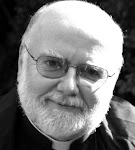More importantly, since it occurs 9 months before the birth of Jesus on Christmas Day, the Annunciation marks the actual incarnation of Jesus Christ - the moment that Jesus was conceived and that the Son of God became the son of the Virgin.
The festival has been celebrated since the 5th century AD.
The festival celebrates two things:
God's action in entering the human world as Jesus in order to save humanity
Humanity's willing acceptance of God's action in Mary's freely given acceptance of the task of being the Mother of God
The Annunciation and the liturgy
The story of the Annunciation has produced three important liturgical texts, the Ave Maria, the Angelus, and the Magnificat.
The angel's greeting to Mary, which is traditionally translated as "Hail Mary, full of grace, the Lord is with thee," (in Latin Ave Maria, gratia plena, Dominus tecum) is the opening of the Ave Maria, and a part of the Rosary prayers.
The Angelus consists of three Ave Marias, together with some additional material. It is said three times a day in some Churches.
The Magnificat (Luke 1:46-55) is the poem with which Mary responds to the Annunciation and celebrates the power of God.
Political implications of the Annunciation
Some feminist theologians find the story of the Assumption portrays women as unacceptably submissive and as colluding with the idea that "women's only claim to fame is the capacity to have babies." They interpret Mary's behaviour as demonstrating passive subordination to male power. Simone de Beauvoir wrote:
For the first time in human history the mother kneels before her son: she freely accepts her inferiority. This is the supreme masculine victory, consummated in the cult of the Virgin.
Other writers have a different interpretation. They don't see Mary as powerless before God, but instead as a woman who makes a free choice to accept God's task for her - a task she could have refused. Mary's acceptance of the role of servant is not, they teach, demeaning, and they point out that Jesus also regarded himself as a servant. And taking up the example of the disciples, they see Mary, through her act of faith, exercising her right to believe what she wants and to cooperate with God in his plan of salvation - a plan that he cannot carry out without her.
Other writers suggest that the story of the Annunciation emphasises the status of women, since in the Incarnation God enlists the help of a woman to create a child of vast importance, and gives men no part to play in this important work.
And in the Magnificat itself, Mary becomes the herald of Salvation, and takes Christianity into the spheres of politics and justice as the first spokesperson for the marginalised people who were the focus of Jesus, and are now the focus of Christians and the Church.
The Bible story of the Annunciation
The story is told in Luke's Gospel, 1: 26-38.
In the sixth month, God sent the angel Gabriel to Nazareth, a town in Galilee, to a virgin pledged to be married to a man named Joseph, a descendant of David. The virgin's name was Mary.
The angel went to her and said, "Greetings, you who are highly favoured! The Lord is with you."
Mary was greatly troubled at his words and wondered what kind of greeting this might be.
But the angel said to her, "Do not be afraid, Mary, you have found favour with God. You will be with child and give birth to a son, and you are to give him the name Jesus. He will be great and will be called the Son of the Most High. The Lord God will give him the throne of his father David, and he will reign over the house of Jacob forever; his kingdom will never end."
"How will this be," Mary asked the angel, "since I am a virgin?"
The angel answered, "The Holy Spirit will come upon you, and the power of the Most High will overshadow you. So the holy one to be born will be called the Son of God. Even Elizabeth your relative is going to have a child in her old age, and she who was said to be barren is in her sixth month. For nothing is impossible with God."
"I am the Lord's servant," Mary answered. "May it be to me as you have said." Then the angel left her.
